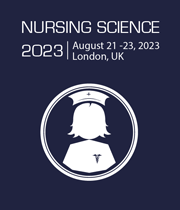Nursing and Infectious Disease
Epidemiology studies how a disease spreads and where it comes from in a population. Nursing care requires a thorough understanding of epidemiology and disease transmission. An agent (virus, bacteria, parasite, or other microorganism), a vulnerable host, and a suitable environment are required for infectious disease transmission. Direct contact or indirect mechanisms of disease transmission are also possible (airborne droplets, vectors, fomites, water or food). Intervention can take the form of targeting the agent (e.g., with microbicides), modifying the environment (e.g., with negative pressure rooms), or strengthening the host (e.g., with antibiotics) (e.g., vaccination). Nurses with infectious disease expertise are in greater demand than ever before in the wake of the coronavirus outbreak. Nurses who work in infectious disease have to deal with some of the most severe situations in the medical field. As a result, these nurses must be well-educated, well-trained, and well-versed in the profession.
- Infection Control Nurse
- Treating and Preventing Infectious Disease
- Infectious Disease Management

Nina Beaman
Aspen University, United States
Daryle Wane
Pasco-Hernando State College, United States
Robin Adams Geiger
Ingenovis Health, United States
Elvessa Narvasa
Quebec CCN, Canada
Sue Roe
The Roe Group Enterprises, LLC, United States
Maria Kozlowski Gibson
Cleveland State University, United States


Title : Nurse as designer: Innovative practice contributing to nursing science
Jean Ross, Otago Polytechnic, New Zealand
Title : Creating a culture of mentorship: Empowering nurses to reach their full potential
Robin Adams Geiger, Ingenovis Health, United States
Title : Emerging paradigm of patient care in the age of wearable technology
Elvessa Narvasa, Quebec CCN, Canada
Title : Late adverse effects of the treatment for childhood cancer
Jelena Roganovic, University of Rijeka, Croatia (Hrvatska)
Title : Relevance of clinical practice in nursing education
Daryle Wane, Pasco-Hernando State College, United States
Title : The neurobiology of aggression: De-escalation and whole-brain processing techniques
Nina Beaman, Aspen University, United States